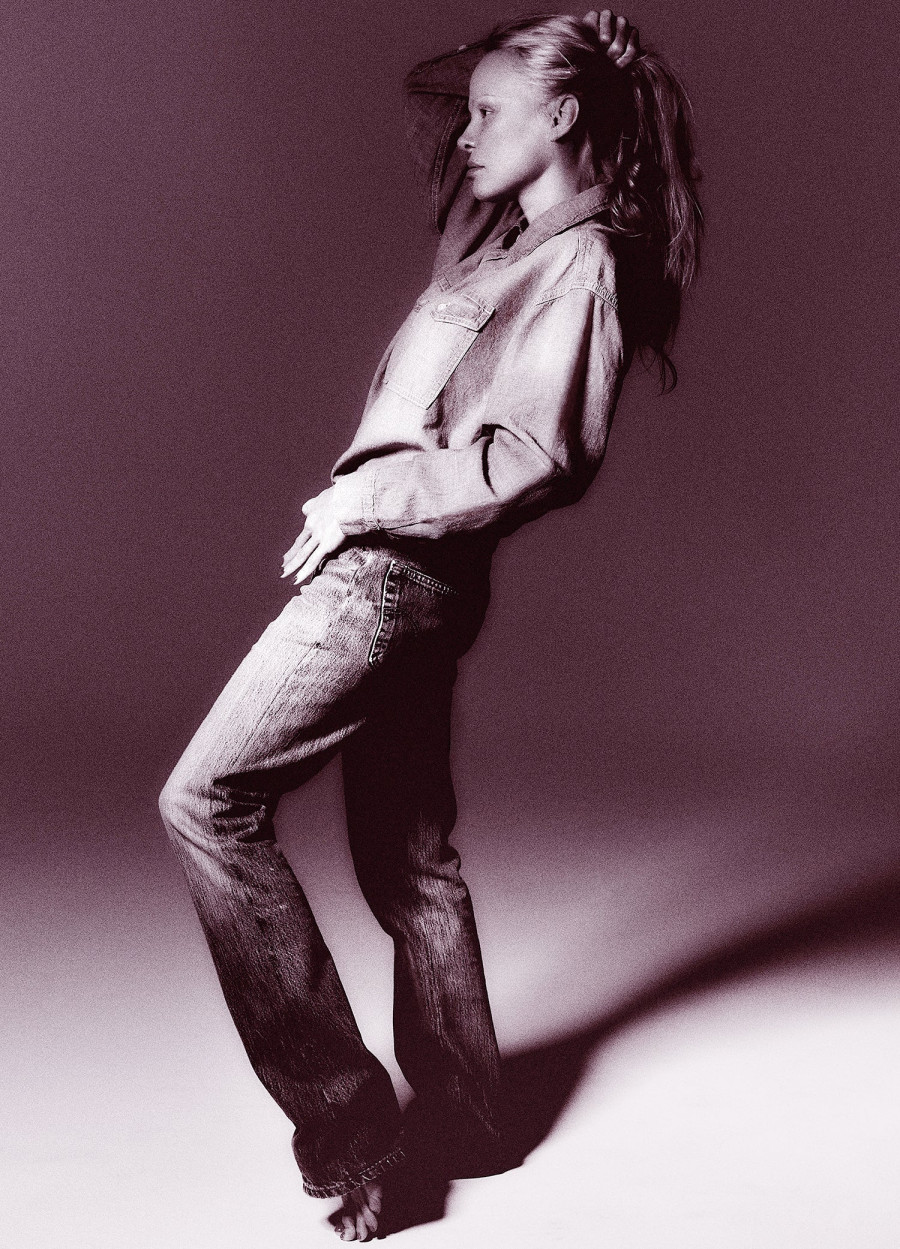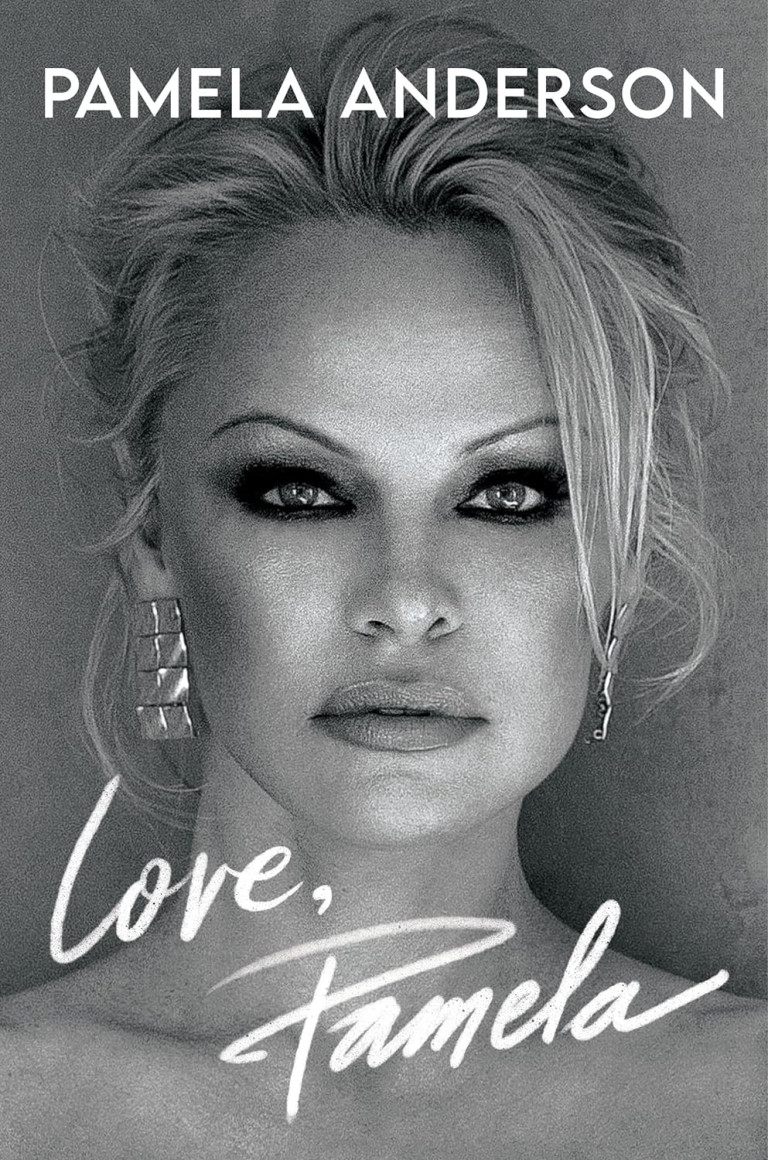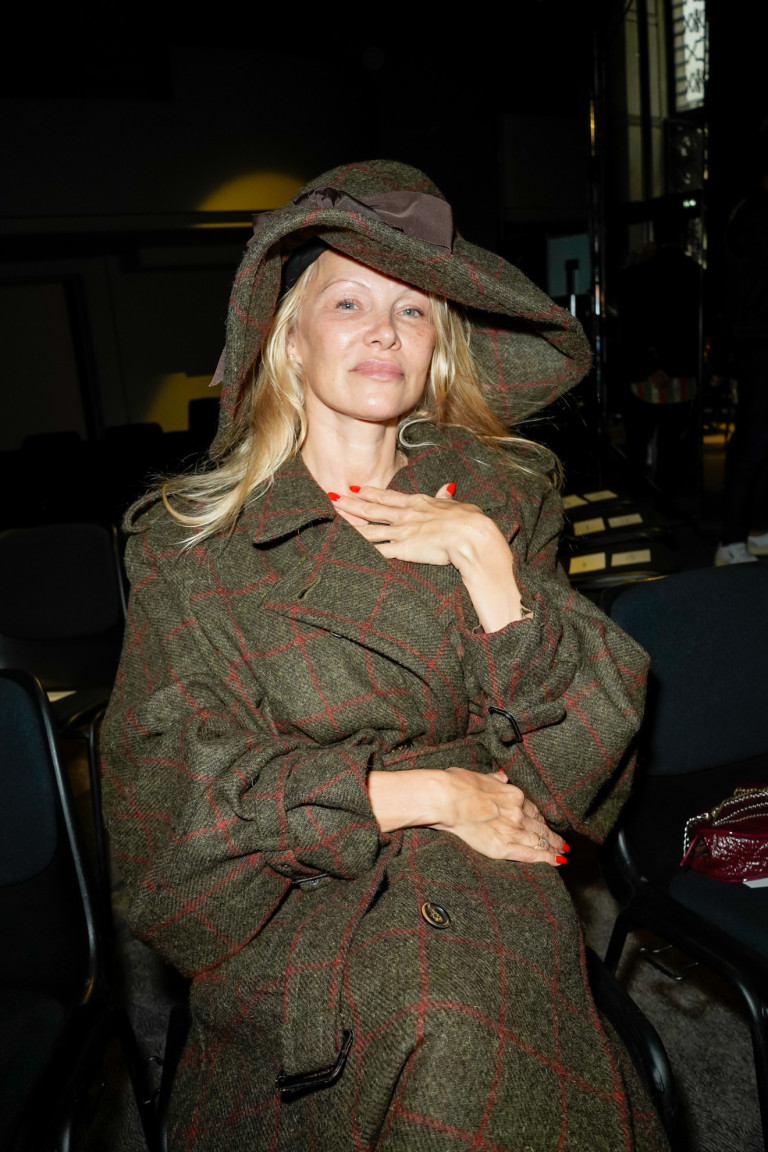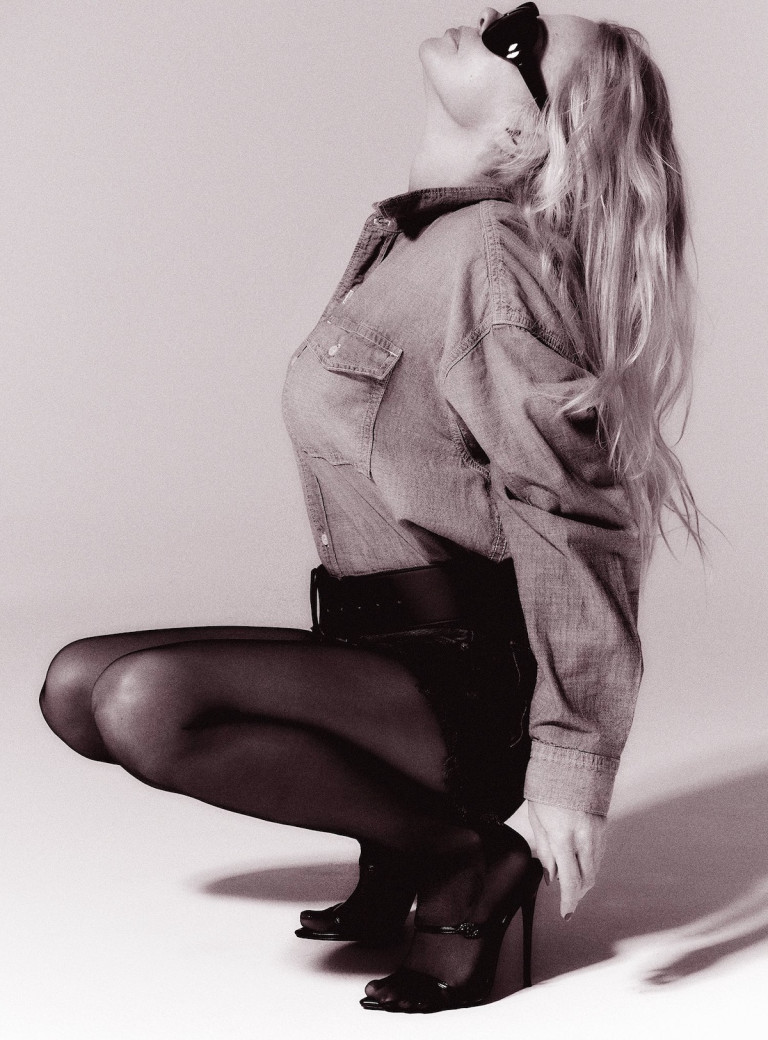
The world has been given an entirely new lens through which we perceive Pamela Anderson. When her memoir Love, Pamela, and the documentary Pamela, A Love Story hit bookshelves and Netflix a year ago Anderson, not only reclaimed her life narrative but she took her rightful place as a cultural and style icon of our time. On the cover of Love, Pamela: A Memoir of Prose, Poetry and Truth the former Baywatch star looks more beautiful than ever at 56 with her signature smokey eye, lined lips, and drawn-on brows. Then the real transformation started. In the year since Anderson bared her soul in these creative projects, she began to strip down the artifice with which she faced the world—the makeup, the bombshell blonde hair, and the skin-baring clothes she had synonymous with. And, it's been a fashion and beauty love affair ever since.

An image of Anderson in Paris during fashion week in September in a menswear-inspired suit with a bare face felt more like a passing street style shot of a Parisian fashion editor than the former Baywatch star. An actual Vogue France Instagram video revealed Anderson's getting-ready routine and her thought process behind the look. "I didn't come to Paris Fashion Week and think, 'I'm not going to wear any makeup.' Something just kind of came over me and I was dressing in these beautiful clothes and I just thought I don't want to compete with the clothes, I'm not trying to be the prettiest girl in the room, I feel like it's just freedom, it's like a relief. I don't have a stylist, I don't have a glam team...You...have to challenge beauty sometimes...if we're all chasing youth or we're all chasing our idea of what beauty is in fashion magazines, we're only going to be disappointed, or maybe a little bit sad."
Why does a makeup-free Anderson feel like such a rebellious act? It's not just any actress going au-natural, it's a former sex symbol and universal example of surgical enhancement flipping the game on its head. "Because of the fact that she's favored labor-intensive looks in the past, Anderson is a much-need model for what it might look like to divest from beauty culture. This is such an important idea: That you can reevaluate your cosmetic choices; that you can change your mind, even after you change your face; that you can stop getting Botox and surgeries or wearing makeup," Jessica DeFino, author of The Unpublishable Newsletter and beauty culture critic, explains. "It's very much an example of Professor Clare Chambers' philosophical concept of the unmodified body, which she discusses in her book Intact. She says, 'The unmodified body is not a literal thing. Your body might be very much left alone, or it might have had surgery or undergone procedures. The idea is that whatever your body is like, right now, you can let it be.' I really don't think the makeup-free thing is a gimmick for Anderson. She's spoken openly about her regret over getting breast implants and Botox for years now. In her memoir, she admitted feeling pressured to undergo cosmetic procedures she didn't truly want for herself. Going makeup-free seems like an authentic choice for her and I think it's great."

More recently, Anderson appeared at the Vanity Fair after-party in an Oscar de la Renta caftan, most likely without the use of a stylist, just a slip of lip balm on her lips and air-dried hair. "Usually when we see people on red carpets, all we're thinking about is how they got ready. And that's all they're talking about is how they got ready, and we know who their stylists are, their makeup artists, and we know which jewelry company is sponsoring them, and which fashion company is sponsoring them. It's become such an industry, the getting ready industry," Amy Odell, author of ANNA: The Biography and the fashion and culture newsletter Back Row explains. "It's unusual to be a celebrity who could have all this stuff and is just doing it all themselves. And I think people are really responding to that because I think there's probably a bit of fatigue with the corporatization of the red carpet." Anderson appeared on endless best-dressed lists after the star-studded affair, most likely beating out some young ingenues who spent hours in a makeup chair and longer in fittings leading up to Hollywood's biggest night.
Then came the news that Anderson, a staunch advocate for sustainability and animal rights activist (she's been an outspoken member of PETA since the late 90s) had teamed up with cult-denim brand RE/DONE to create an eco-friendly line. Inspired by her nineties style RE/DONE & Pam features recycled fabrics, sustainable washes, and untreated organic cotton.

This degree of authenticity has also led to an onslaught of high fashion press. The 56-year-old has appeared on the covers and across the pages of CR Fashion Book, High Snobriety, and The Perfect Magazine in the last two months alone. Earlier this year she served as the face of a Proenza Schouler campaign and she recently revealed a collaboration with the denim brand Re/Done. She sat front row at The Row show in Paris earlier this month, an exclusive ticket in a space that served as a how-to on restraint—the brand founded by Mary-Kate and Ashley Olsen requested show-goers abstain from taking photos or videos during the runway presentation, and then waited days to reveal images of the collection. It's this delay of instant gratification, this same lack of look-at-me culture that's magnetizing people to Anderson as well as The Row. In a time when influencer and celebrity culture reigns, doing less feels like a revelation. "There's something cool about someone just showing up as themselves in a world where we're just so oversaturated," Odell says of Anderson.
It can't go unsaid that in the midst of all of this, Anderson revealed in January that she has been brought on as the new co-founder and owner of minimalist and ethical beauty brand Sonsie Skin, which was launched last June. Does this economic twist change how we see her newfound public identity? "The attention economy is really tough, and if it was a strategic plan, it was really smart," Odell says. DeFino has a more mixed reaction, "I do think this is a positive shift in perception, but I think it would be a much more positive shift in perception if Anderson had not invested in a skincare brand," she says. "As is, she's ultimately promoting swapping one form of aesthetic labor for another. It would be much more radical to divest from it all and not profit off her choice. But it's a good start."

In the Vogue France video, Anderson said, simply, "I'm just being me." In a moment when media treatment of women in the past 30 years is being reexamined, how our notions of the Britneys, and the Monica Lewinsky's have been disabused, Anderson is finally getting her due—and her new beauty line.







